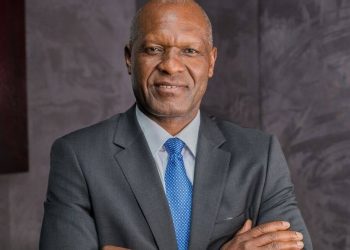
Nigeria’s government has postponed a plan to end costly fuel subsidies, saying the timing was not right, a year before the presidential election.
Under pressure over its budget, Nigeria had proposed removing the so-called Premium Motor Spirit or PMS subsidy that costs the government billions of dollars each year to keep gasoline costs below the market price.
But for many Nigerians, cheap fuel is one of the few tangible benefits they see from the country’s oil wealth, especially as many struggle with high living costs.
Finance Minister Zainab Ahmed had said the “unsustainable” programme could end in June in line with priorities set out by the World Bank and International Monetary Fund. But ministers have rolled back that schedule.
“It become clear that the timing is problematic, that practically there is still heightened inflation and also the removal of subsidies would further worsen the situation and thereby imposing more difficulties on the citizens,” Ahmed told senators on Monday.
“Mr President clearly does not want to do that. What we have to do now is to continue with the ongoing discussions … in terms of putting in place a number of measures.”
She said these would include improving refining capacity to cut back on imported fuel, which accounts for most of the country’s consumption.
Removing the fuel subsidy was a key part of a new oil law passed last year after more than a decade of wrangling.
Petroleum Resources Minister Timipre Sylva said on Tuesday the government would propose delaying the end of the subsidy system for 18 months, leaving it in the hands of the new government after the election.
He said the national assembly would decide on amending the oil legislation to extend the subsidies. But he dismissed concerns over pressure from the World Bank over keeping the system in place.Â
“We have to look at the reality in our country. The World Bank cannot run Nigeria for us. We know that they mean well for us, but we have to look at the real issues on the ground,” he said.
No labour protestÂ
Nigeria’s national labour movement NLC said on Tuesday it had also called off a protest planned for Thursday against any moves to end the subsidy programme.
Ahmed had earlier proposed replacing the subsidies with “a monthly aid of 5,000 naira (about R190) to 30 or 40 million Nigerians” among the poorest.
The subsidy programme is high politically charged especially a year from the country’s February 2023 presidential election to replace Buhari.
Since the 1970s, the federal state – which spends more on subsidies than in other key underdeveloped sectors such as education or health – has borne part of the cost of petroleum products.
Currently, a litre of gasoline costs an average of 165 naira (R6).
Ten years ago, when then President Goodluck Johnson attempted to end the subsidy system, unions and popular protests saw the army out on the streets until the government backed down.
“I don’t see any government coming in, even the next government that comes in after 2023, I simple don’t see the political will coming from anywhere to change the system,” said Cheta Nwanze, lead partner with SBM Intelligence risk consultancy.Â
Between January and August 2021, Nigeria spent nearly 864 billion naira (R32 billion) in subsidies, more than the entire health or education budget in 2020, according to Eurasia Group.
The World Bank had recommended that Nigeria end the subsidy programme within the next six months to promote diversification its economy, which relies heavily on crude production.-fin24











